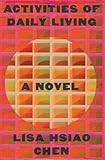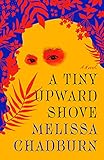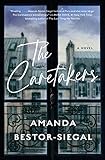Here’s a quick look at some notable books—new titles from Okwiri Oduor, Lisa Hsiao Chen, Leigh Newman, and more—that are publishing this week.
Want to learn more about upcoming titles? Then go read our most recent book preview. Want to help The Millions keep churning out great books coverage? Then become a member today.
Things They Lost by Okwiri Oduor
Here’s what Publishers Weekly had to say about Things They Lost: “A haunting bond between mother and daughter is examined in Oduor’s ambitious debut. In Mapeli Town, somewhere in East Africa, Ayosa Brown grows up with the ability to see the memories of her mother, Nabumbo Promise, from before she was born. She also witnessed Nabumbo Promise being attacked by a man with a knife, followed by her mother’s act of retaliation. Now, at 13, Ayosa is often left alone for weeks or months by Nabumbo Promise as she travels for work as a photographer. Nabumbo Promise is tortured by painful secrets from her childhood involving her dead brother and estranged twin sister, which Ayosa knows about but keeps to herself. Ayosa and her mother have an intense, intoxicating relationship; Ayosa’s love is ever replenishing and full of forgiveness, even though her mother’s kisses sometimes repulse her, “like roaches crawling across [her] face,” and her mother’s love is “lukewarm at best.” On her own, Ayosa bonds with Sindano, a woman who owns a café that no one visits, and with Mbiu, a girl who stands outside various windows, sometimes for hours at a time. In their company, Ayosa comes to understand unconditional love. Oduor makes loss and familial disappointment palpable through her potent and visceral prose. This keeps the reader holding their breath.”
Bomb Shelter by Mary Laura Philpott
 Here’s what Publishers Weekly had to say about Bomb Shelter: “Philpott (I Miss You When I Blink) explores life’s pleasures and uncertainties in this wry if meandering collection of essays. She searches for meaning in the noteworthy and the mundane, sleekly juxtaposing lamentations about her herniated discs (an injury caused by ‘too many years hunched over a laptop’) with deeply affecting reflections on such life-altering experiences as her son’s first seizure. She also humorously investigates her own contradictory nature, as a person who’s both immensely anxious and overly cheerful: ‘Am I here to tell you we’re all going to die? Yes. Am I here to give you a pep talk along the way? Also yes!’ Occasionally, though, she wanders down a winding path of tangential thoughts and unrelated asides; for instance, the surprising news that her dad worked at Raven Rock, a secret underground military bunker, zigzags her to the moment when she learned, after two decades of living with her husband, that he could juggle. While the scattershot narration can distract, Philpott draws readers back in with her philosophical and witty musings—from wondering about her place in the universe to remembering a family dog that would only eat to the music of Kanye West. Rambling tendencies aside, this quirky work has a lot of heart.”
Here’s what Publishers Weekly had to say about Bomb Shelter: “Philpott (I Miss You When I Blink) explores life’s pleasures and uncertainties in this wry if meandering collection of essays. She searches for meaning in the noteworthy and the mundane, sleekly juxtaposing lamentations about her herniated discs (an injury caused by ‘too many years hunched over a laptop’) with deeply affecting reflections on such life-altering experiences as her son’s first seizure. She also humorously investigates her own contradictory nature, as a person who’s both immensely anxious and overly cheerful: ‘Am I here to tell you we’re all going to die? Yes. Am I here to give you a pep talk along the way? Also yes!’ Occasionally, though, she wanders down a winding path of tangential thoughts and unrelated asides; for instance, the surprising news that her dad worked at Raven Rock, a secret underground military bunker, zigzags her to the moment when she learned, after two decades of living with her husband, that he could juggle. While the scattershot narration can distract, Philpott draws readers back in with her philosophical and witty musings—from wondering about her place in the universe to remembering a family dog that would only eat to the music of Kanye West. Rambling tendencies aside, this quirky work has a lot of heart.”
Activities of Daily Living by Lisa Hsiao Chen
 Here’s what Publishers Weekly had to say about Activities of Daily Living: “Chen wows in this tender debut novel (after the poetry collection Mouth) about an Asian American woman caring for her ailing white stepfather while working on a study of Tehching Hsieh, the Taiwanese performance artist best known for his durational performances. Alice, a 39-year-old video editor, pushes pause on the Hsieh project after her unnamed stepfather—a retired carpenter and Vietnam vet with a passion for Chinese furniture—begins to exhibit signs of dementia. She and her sister Amy prepare to put his house up for sale so he can afford a care facility near Amy’s home in San Jose, Calif., which involves selling off and hauling away his treasured belongings and enduring heartbreaking bouts of his illness-fueled rage. To cope, Alice returns to Hsieh’s transgressive work, such as the Rope Piece (1983–1984), a collaboration with Linda Montano in which the artists spent a year tied together by an eight-foot rope. She reads his interviews and the philosophical texts that inspired him until the project becomes as much about her stepfather as it is about Hsieh. While switching between Alice’s stepfather’s decline in the late 2010s and Hsieh’s works in the 1980s, Chen develops an intelligent and deeply empathic portrayal of Alice witnessing her stepfather disappearing inside himself, and in doing so offers careful and illuminating observations on issues of cultural difference, productivity, family, and freedom. Chen’s own project is masterly and memorable.”
Here’s what Publishers Weekly had to say about Activities of Daily Living: “Chen wows in this tender debut novel (after the poetry collection Mouth) about an Asian American woman caring for her ailing white stepfather while working on a study of Tehching Hsieh, the Taiwanese performance artist best known for his durational performances. Alice, a 39-year-old video editor, pushes pause on the Hsieh project after her unnamed stepfather—a retired carpenter and Vietnam vet with a passion for Chinese furniture—begins to exhibit signs of dementia. She and her sister Amy prepare to put his house up for sale so he can afford a care facility near Amy’s home in San Jose, Calif., which involves selling off and hauling away his treasured belongings and enduring heartbreaking bouts of his illness-fueled rage. To cope, Alice returns to Hsieh’s transgressive work, such as the Rope Piece (1983–1984), a collaboration with Linda Montano in which the artists spent a year tied together by an eight-foot rope. She reads his interviews and the philosophical texts that inspired him until the project becomes as much about her stepfather as it is about Hsieh. While switching between Alice’s stepfather’s decline in the late 2010s and Hsieh’s works in the 1980s, Chen develops an intelligent and deeply empathic portrayal of Alice witnessing her stepfather disappearing inside himself, and in doing so offers careful and illuminating observations on issues of cultural difference, productivity, family, and freedom. Chen’s own project is masterly and memorable.”
A Tiny Upward Shove by Melissa Chadburn
 Here’s what Publishers Weekly had to say about A Tiny Upward Shove: “In Chadburn’s astonishing debut, the story of a Filipino woman’s short life is told by an aswang spirit. In 1994, after 18-year-old Marina Salles is murdered by serial killer Willie Pickton, the folkloric and omniscient aswang enters her body and recounts Marina’s harrowing coming-of-age. As a little girl, she moves with her mother, Mutya, to Westwood after Mutya is accepted at UCLA. While at a party thrown by Mutya’s boyfriend, Marina is raped at 13, then placed by child services in a group home in the San Fernando Valley. The environment hardens Marina, though she develops a loving relationship with her new girlfriend, Alex, who is also a victim of child abuse. Marina is emancipated at 16 and moves to a rough South Los Angeles apartment complex where she gets hooked on heroin. Strung out, she goes to Vancouver to help Alex find her mother. She ends up doing sex work to pay for drugs and meets Willie, who preys on young women with drug problems. The author’s poetic language enthralls, whether in relating the hardships of past generations of Salles women (“we broadcast them—each conversation a carnival of agonies”), or describing the bleak land of death (‘There’s no numbing dope, no dick wows, no kitty kitty yum yum, just a floodlight on all the world’s needs’). This is electrifying.”
Here’s what Publishers Weekly had to say about A Tiny Upward Shove: “In Chadburn’s astonishing debut, the story of a Filipino woman’s short life is told by an aswang spirit. In 1994, after 18-year-old Marina Salles is murdered by serial killer Willie Pickton, the folkloric and omniscient aswang enters her body and recounts Marina’s harrowing coming-of-age. As a little girl, she moves with her mother, Mutya, to Westwood after Mutya is accepted at UCLA. While at a party thrown by Mutya’s boyfriend, Marina is raped at 13, then placed by child services in a group home in the San Fernando Valley. The environment hardens Marina, though she develops a loving relationship with her new girlfriend, Alex, who is also a victim of child abuse. Marina is emancipated at 16 and moves to a rough South Los Angeles apartment complex where she gets hooked on heroin. Strung out, she goes to Vancouver to help Alex find her mother. She ends up doing sex work to pay for drugs and meets Willie, who preys on young women with drug problems. The author’s poetic language enthralls, whether in relating the hardships of past generations of Salles women (“we broadcast them—each conversation a carnival of agonies”), or describing the bleak land of death (‘There’s no numbing dope, no dick wows, no kitty kitty yum yum, just a floodlight on all the world’s needs’). This is electrifying.”
The Caretakers by Amanda Bestior-Segal
 Here’s what Publishers Weekly had to say about The Caretakers: “Bestor-Siegal explores the isolating world of au pairs in her introspective debut set in Maisons-Larue, France. The quiet, predominantly white town is rattled by the arrest of Alena, an American au pair charged with the murder of Julian Chauvet, an eight-year-old boy she had in her care. The mystery of what happened to Julien unravels through the perspectives of a neglected daughter and a number of caretakers‚ from au pairs to the mothers who sometimes feel inadequate, and their shame is only heightened by the community’s class-based judgment (Bestor-Siegal sums up the collective attitude among the working mothers: ‘This is what happens when you don’t raise your own children’). The whodunit plotline, though, is entirely eclipsed by a series of powerful narratives from Alena as well as fellow au pairs Holly and Lou, all of whom deal with homesickness and struggle to adapt in France; and from their host families who keep disrespecting their boundaries. While it takes a while to understand how each story and character connects to Julien’s murder due to the slow progression of the plot, Bestor-Siegal excels at character development. Once the author gets going, she cracks open an intriguing world.”
Here’s what Publishers Weekly had to say about The Caretakers: “Bestor-Siegal explores the isolating world of au pairs in her introspective debut set in Maisons-Larue, France. The quiet, predominantly white town is rattled by the arrest of Alena, an American au pair charged with the murder of Julian Chauvet, an eight-year-old boy she had in her care. The mystery of what happened to Julien unravels through the perspectives of a neglected daughter and a number of caretakers‚ from au pairs to the mothers who sometimes feel inadequate, and their shame is only heightened by the community’s class-based judgment (Bestor-Siegal sums up the collective attitude among the working mothers: ‘This is what happens when you don’t raise your own children’). The whodunit plotline, though, is entirely eclipsed by a series of powerful narratives from Alena as well as fellow au pairs Holly and Lou, all of whom deal with homesickness and struggle to adapt in France; and from their host families who keep disrespecting their boundaries. While it takes a while to understand how each story and character connects to Julien’s murder due to the slow progression of the plot, Bestor-Siegal excels at character development. Once the author gets going, she cracks open an intriguing world.”
Nobody Gets Out Alive by Leigh Newman
 Here’s what Publishers Weekly had to say about Nobody Gets Out Alive: “Newman’s electric debut collection (after the memoir Still Points North) follows hardscrabble women in Alaska whose rough exteriors conceal myriad vulnerabilities. In ‘Howl Palace,’ a 67-year-old woman who goes by ‘Dutch’ has gone through five husbands and grieved the loss of one too many of the black Labs she’s cared for over the years in place of having children. Now, she’s forced to put her beloved house up for sale. Though she knows any buyer will tear it down, she starts preparations for an elaborate open house feast, during which longtime crush Carl arrives to drop off a sick dog. In the captivating title story, newlywed Katrina avoids husband Carter at a party thrown by her best friend, Neil, where guests vault over the massive skull of a mastodon. Searching for Katrina, Carter reflects on how she ‘shot into his life like a blond, carnivorous meteor’ when they met in New York City, and considers how she left behind her past life. Here and throughout, Newman’s prose is both distinctive and efficient. In the dark and poignant ‘Slide and Glide,’ unemployed Bobby thinks his wife is cheating and suggests they take their family to a cabin in winter, a desperate and dangerous move that serves as a summation of how he’s moved through life. The author’s crisp portrayal of the Alaskan landscape and rugged culture holds the collection—and its magnetic characters—together. Newman firmly establishes herself as a talent with these stunning stories.”
Here’s what Publishers Weekly had to say about Nobody Gets Out Alive: “Newman’s electric debut collection (after the memoir Still Points North) follows hardscrabble women in Alaska whose rough exteriors conceal myriad vulnerabilities. In ‘Howl Palace,’ a 67-year-old woman who goes by ‘Dutch’ has gone through five husbands and grieved the loss of one too many of the black Labs she’s cared for over the years in place of having children. Now, she’s forced to put her beloved house up for sale. Though she knows any buyer will tear it down, she starts preparations for an elaborate open house feast, during which longtime crush Carl arrives to drop off a sick dog. In the captivating title story, newlywed Katrina avoids husband Carter at a party thrown by her best friend, Neil, where guests vault over the massive skull of a mastodon. Searching for Katrina, Carter reflects on how she ‘shot into his life like a blond, carnivorous meteor’ when they met in New York City, and considers how she left behind her past life. Here and throughout, Newman’s prose is both distinctive and efficient. In the dark and poignant ‘Slide and Glide,’ unemployed Bobby thinks his wife is cheating and suggests they take their family to a cabin in winter, a desperate and dangerous move that serves as a summation of how he’s moved through life. The author’s crisp portrayal of the Alaskan landscape and rugged culture holds the collection—and its magnetic characters—together. Newman firmly establishes herself as a talent with these stunning stories.”
Also on shelves this week: How to Adjust to the Dark by Rebecca van Laer.









